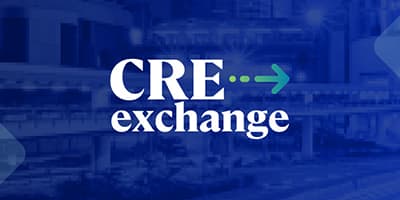Key highlights
The role of CIO has evolved over time, and now plays an integral role in the continued innovation, competitive advantage, success, and scalability of CRE business
The appointment of a “fractional CIO” is becoming a vital, cost-effective, and flexible business option for many CRE companies around the globe, especially with hiring and resourcing challenges being felt everywhere
A fractional CIO typically has authority to devise and execute strategy. Experience with a range of organizations and challenges enables them to quickly resolve complex problems.
There are a number of key challenges faced by CRE businesses, as well as opportunities they may want to exploit, which fractional CIOs are qualified to address
With their understanding of the tech landscape and trends, fractional CIOs can effectively determine how to appropriately optimize systems and processes to support the business model, map the transformation and align management, business units and teams with a shared vision that supports strategic goals
To find the right fractional CIO, you must clearly identify what you expect a fractional CIO to accomplish, and then consider the experience and skills required to fulfill these responsibilities
In a world of constant change and innovation, commercial real estate (CRE) businesses must remain focused and agile. Amid ever-evolving technologies and standards, it is one of the foremost responsibilities of the Chief Information Officer (CIO) to leverage technology and people to drive business transformation, optimize performance, ensure sustainability and, ultimately, ensure the long-term success and continued scalability of a company.
The priorities that CIOs focused on just a few years ago have advanced into a completely new sphere. As many technologies have advanced and become commoditized and outsourced – mobile, cloud computing, artificial intelligence, data analytics, machine learning, to name a few – the CIO role has evolved. Originally, the CIO acted almost exclusively as a technical problem solver; however, CIOs today must be a business strategist, innovation champion, transformation driver, partnership promoter and change manager. Ultimately, the CIO is responsible for creating value and competitive advantage.
More than ever, CRE business success depends on the success of technology utilization. Yet, in the world of commercial real estate, CIOs with this capability are challenging to find, and even more challenging to keep.
“The CRE industry has traditionally been perceived as a laggard when it comes to technology adoption, and unfortunately that has extended to the lack of recognition of the need for a C-level leader in IT for medium to smaller portfolios. However, the game has changed for the industry and technology is at the core of responding to the change. Companies should recognize the need for a C-level IT leader that can be a business partner and drive digital transformation.”
This is why the appointment of a “fractional CIO” is becoming a vital business decision for more and more CRE companies around the globe. Not only is the appointment of a fractional CIO a uniquely flexible and cost-effective solution – it also allows businesses to outsource for a key talent need and lead the organization through a challenging or otherwise transformative period.
The role of a fractional CIO in today’s landscape
A fractional CIO is both an executive and an information technology expert who works on a part-time, contractual basis to provide affordable technology leadership that supports business growth and mitigates risk. They can be an agile, affordable solution for short-term transitional periods, typically in the range of six months. Even companies with in-house CIOs can often benefit from the temporary support of a fractional CIO.
It's important to note that this role differs from that of an interim executive or consultant. A fractional CIO typically works on projects for several companies concurrently and has authority to devise and execute strategy. Experience with a range of organizations and challenges enables them to quickly resolve complex problems.
Since fractional CIOs are third parties, they can ask tough questions, objectively assess strengths and weaknesses, and provide fresh suggestions to drive change.
“As CRE companies shift from a hard technology focus to a business partnership mindset, they need help in that transition.”
Challenges and opportunities a fractional CIO can address, including the ongoing quest for talent
There are a number of key challenges faced by CRE businesses, as well as opportunities they may want to exploit, which can be better addressed with the help of a fractional CIO. Let’s consider the following scenarios:
Specific problems or associated projects: Fractional CIOs provide essential strategic technology leadership when IT projects must be completed efficiently and cost-effectively. These might include implementation of new systems or security initiatives and other types of projects with strict timelines and intricate requirements.
They can also assist a company’s full-time CIO, serving as a complementary, executive-level resource to navigate difficult challenges such as lagging technology implementations or business model shifts.
IT unaligned with business strategies: In support of company goals, a fractional CIO can work with the C-suite to establish an IT governance framework. Along with aligning people, processes, and technologies to deliver needed outcomes, they can ensure this structure mitigates risk, embraces best practices and encourages innovation.
“Establishing a governance framework that can measure the cost and impact of IT gives the C-suite visibility into its true value.”
Workflow and operational inefficiencies: Outdated, legacy workflows often impede productivity and result in operation errors. A fractional CIO can play an integral role in optimizing systems by mapping existing processes, identifying core problems, and restructuring and digitizing workflows to enhance performance, minimize risk of error, and reduce costs.
Manual budgeting and forecasting require time-consuming adjustments: Budgeting and forecasting can be cumbersome when done manually, with the need to frequently reforecast due to market and project changes. A fractional CIO can automate data collection and entry to strengthen timeliness, improve accuracy, reduce errors, and facilitate insight-driven planning.
Siloed, disparate data: Many CRE firms have large amounts of data and documents stored in disconnected systems. Application sprawl, which dilutes data, is also very common and, more often than not, software is poorly configured, underutilized and under supported. As a result, asset, portfolio and fund managers must often spend extensive time collecting, cleaning and consolidating data before they are able to use it to make decisions.
A fractional CIO can establish a technology foundation with appropriate data enrichment and management that enables these employees to focus on performance improvements and value creation.
Lack of data controls: Investors, particularly institutional investors, have high expectations for internal controls, especially related to data privacy. With data now being shared among a vast range of business units, remote employees, customers, suppliers, and many other parties, CRE businesses need an end-to-end data protection strategy, including policies and procedures that comply with relevant laws and regulations.
A fractional CIO can devise a strategy that protects the security and privacy of data across applications, servers, networks, user devices, databases, and the cloud – while also enabling its full value to be extracted.
“A fractional CIO can help on a temporary basis to support a series of associated projects or lead the business through a challenging or otherwise transformative period.”
Business and technology transformation
Effectively leveraging technology and data is now essential for companies hoping to establish a competitive advantage in commercial real estate. However, transforming business models for organizations with traditional processes and legacy technology is arduous.
With their understanding of the tech landscape and trends, fractional CIOs can quickly determine how to appropriately optimize systems and processes to support the business model, map the transformation and align management, business units and teams with a shared vision that supports strategic goals. Moreover, with time and resources always of concern, a fractional CIO can ensure clarity regarding both the costs and the value of new technology for the business.
“Often, the CEO views tech as a business enabler, whereas the CFO considers it a risk to be managed. A fractional CIO can play an invaluable role in aligning the C-suite around exactly how technology can support the organization.”
Leadership stability: During periods of transition, a fractional CIO can provide critical stability and ensure that operations continue to run effectively.
Quest for Talent: If a company’s CIO departs before a new one is selected, this position is typically too important to leave vacant. At the same time, challenges and resourcing challenges are being felt across the industry, arguably now more than ever. With this in mind, the appointment of a fractional CIO can help to temporarily address critical gaps in a company’s leadership hierarchy while the search for a full-time CIO continues. Having an experienced fractional CIO in place to guide the organization through this period can support a smooth transition while ensuring that key initiatives continue moving forward.
Help to find a permanent CIO: As the role of the CIO becomes more critical to the success of commercial real estate businesses, a CIO hiring strategy must consider today’s top IT challenges. A fractional CIO can help with this priority by assessing the organization’s needs, determining the necessary qualifications, and even recruiting, screening and interviewing CIO candidates to ensure the best individual is selected for the role.
Answering these questions delivers reassuring ROI
Should you determine that hiring a fractional CIO might be the right approach for challenges like these, considering two key questions can help you ensure a good return on your investment.
“A fractional CIO must have real CIO experience in the real estate industry. They need to bring current experience from current relationships.”
How do we find the right fractional CIO?
Clarify your goals: To get the results you expect, identify, and define specific goals. Given this is a short-term role, what do you want to meaningfully accomplish in six or eight or 10 months? Consider how the fractional CIO may need to maintain continuity, complete pending strategies, or act as a business disruptor.
Determine the qualifications of a fractional CIO based on these requirements: Once you specify what you expect a fractional CIO to accomplish, consider the experience and skills required to fulfill these responsibilities. Think about the team they will be working with and the culture of your business. Since this is a short-term role, they have to hit the ground running in order to be successful.
And overall, it’s important to evaluate the important attributes that every fractional CIO should possess:
Combined technology and industry knowledge: While a fractional CIO does not necessarily require deep technical expertise, they should have a working knowledge across all IT disciplines and a good understanding of how technology is evolving – especially within the commercial real estate industry. They should be able to demonstrate IT and industry expertise as well as successes.
Strategic thinker: To utilize technology strategically to meet a company’s needs, a fractional CIO must be able to link tasks to an integrated vision. They should be able to view the organization holistically, taking into consideration employee concerns, the business impact of IT decisions and the return on investment.
Change agent: In many instances, a fractional CIO is not simply implementing technology; they are executing organizational change through technology by encouraging people to change their behavior. They must be able to address the status quo without being confrontational, able to persuade others to see the vision and get on board.
Relationship builder: To move initiatives forward and resolve conflict, a fractional CIO must be a strong communicator and adept in establishing relationships quickly to forge alignment.
Skilled strategist: They should be experienced in assessing the business landscape, identifying areas of opportunity, and developing strategies to capitalize on those opportunities, with the ability to analyze data to inform their recommendations.
Hold a deep toolkit: A fractional CIO must have experience with – and access to – diverse resources, including people, best practices, tools, frameworks, models and more, which they can leverage to achieve success.
Right cultural fit: To be effective as a change agent, the values and behaviour of the fractional CIO must be a good match for the particular business and working environment.
How do we ensure we’ll receive value for money?
Engaging a fractional CIO is not a fixed price engagement. Since you pay for the hours this professional spends with your organization, ensuring value for your investment must be a top priority.
With this in mind, both parties need to set clear expectations and goals. You should anticipate that candidates will ask probing questions to ensure they have a clear picture of what is needed.
These questions may include, but are not limited to:
What is your vision for the business? How do you plan to grow it?
How is the IT department perceived within the company? What is, and isn’t working well?
What business applications do you use? How are they controlled?
How do you define your organization’s culture?
What do you consider the most significant challenge for this engagement?
How much autonomy will I have to make decisions? Will the C-suite back my decisions?
How do you define success for this engagement?
And in turn you should seek clarity regarding their approach, with questions like:
What do you see as top priorities for this engagement?
What will be your onboarding process?
What time commitment do you estimate?
When can we expect to see a plan? And what will that include?
What is your expected time to value?
“Hiring a fractional CIO isn’t a permanent solution. It's an investment. To determine ROI, you should be asking: what is the cost of not hitting that target? What is the cost of failure?”
Fractional CIO can facilitate innovation, expansion, scalability, and sustainability
All top-performing CRE companies generate value from their IT investments. But realizing the business benefits of technology initiatives and innovations relies on the right timing. Loss of control and missed opportunities can set a company back very quickly.
To sustain growth and a competitive edge, a fractional CIO can provide experience and expertise that supports innovation, expansion, scalability and sustainability.
Can a fractional CIO leverage the right timing to drive change for your business?
“Hiring a fractional CIO brings a company closer to solutions, manages risk, and sets it up for long-term success.”
Authors

David Srour
VP, Head of Global Consulting Services, Real Estate

Ray Thornton
Senior Director
Authors

David Srour
VP, Head of Global Consulting Services, Real Estate

Ray Thornton
Senior Director
Resources
Latest insights






